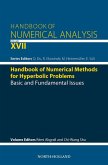The last item (which is very often underestimated but, let us re-iterate, which is very important) is the major topic of this book. In fact, the proper organization of the computational process can be viewed as a preparation of templates which can be used with different numerical methods and different parallel devices. The development of such templates is described in the book. It is also demonstrated that many comprehensive environmental studies can successfully be carried out when the computations are correctly organized. Thus, this book will help the reader to understand better that, while (a) it is very important to select fast numerical methods as well as (b) it is very important to develop parallel codes, this will not be sufficient when the problems solved are really very large. In the latter case, it is also crucial to exploit better the computer architecture by organizing properly the computational process.
- Use of templates in connection with the treatment of very large models
- Performance of comprehensive environmental studies
- Obtaining reliable and robust information about pollution levels
- Studying the impact of future climatic changes on high pollution levels
- Investigating trends related to critical levels of pollution
Dieser Download kann aus rechtlichen Gründen nur mit Rechnungsadresse in A, B, BG, CY, CZ, D, DK, EW, E, FIN, F, GR, HR, H, IRL, I, LT, L, LR, M, NL, PL, P, R, S, SLO, SK ausgeliefert werden.









